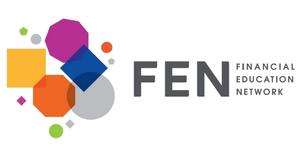3rd ASEAN INSURANCE SUMMIT 2018
The Fourth Industrial Revolution and Its Impact on the ASEAN Insurance Industry
KUALA LUMPUR, 30 November 2018 – The 3rd ASEAN Insurance Summit was officially launched by the Assistant Governor of Bank Negara Malaysia, Adnan Zaylani Mohamad Zahid on 28 November 2018 and witnessed by over 300 insurance leaders, regulators, stakeholders and insurance industry players from the ASEAN region.
Themed, “The Fourth Industrial Revolution and Its Impact on the ASEAN Insurance Industry”, the one day Summit took place in Sasana Kijang, Bank Negara Malaysia, Kuala Lumpur.
Speaking at the Summit, Adnan Zaylani urged domestic industry players to develop their own competitive advantage against foreign players to step up and seize the opportunities, amid the advent of Industry 4.0 and digitalization.
He stated “Besides technology, much needs to be done in this new phase where consumer interests and protecting the well-being of the underserved have become more important goals for societies. The industry needs to take notice that with the democratization of information and knowledge through technology, the balance has shifted to favour the consumers and public at large. Hence, consumer-centric propositions have become increasingly important to meet the needs and conditions of ASEAN consumers.”
Meanwhile Evelina F. Pietruschka, Secretary General of ASEAN Insurance Council (AIC) hoped that the Summit would bring new directions, trends and latest developments that are highly relevant to the insurance industry, so that ASEAN would be able to take advantage of these developments to grow its businesses.
Total gross written premiums recorded in ASEAN increased by 6.5% to US$86.6 billion, and the overall insurance penetration rate rose 10 basis points from 2.8% in 2016 to 2.9% in 2017. Thailand, Singapore, and Indonesia have the most developed insurance markets in the region with contributions of insurance premiums at 29%, 28% and 22% respectively*.
The ASEAN life insurance market recorded a 9.3% increase to US$64.4 billion in net written premiums in 2017, with Singapore (21%), Thailand (18.1%), and Indonesia (14,4%) as top contributors*.
The general insurance market has also registered significant growth with a 5.3% increase in its gross written premiums, led by Thailand (30%), Indonesia (21.2%), and Malaysia (18.4%) as top contributors*.
“The insurance industry can play a bigger and more strategic role in the AEC post 2015. Greater emphasis should be given to promote the investment power of the insurance industry in the ASEAN region to implement measures already outlined in the AEC Blueprint 2025”, said Evelina F. Pietruschka.
The first plenary session on “How the Fourth Industrial Revolution Will Shape the Insurance Industry and its Impact on the ASEAN Insurance Industry” discussed digitalization’s impact on the insurance industry compared to other sectors.
Speaking at this session, LIAM President, Anusha Thavarajah, said insurance providers should not be afraid to embrace the fourth industrial revolution, as digital technology would enable insurance companies to improve the customer experience and make it easier for consumers to understand their products.
“The 4.0IR should be viewed as a huge competitive advantage that will spur the growth of the companies and industry as a whole.”
“The biggest key to success is accessibility as it opens doors for insurance (companies) to create awareness among customers and address the biggest problems of market penetration and protection gap,” added Anusha.
PIAM Chairman, Mr. Antony Lee who was also one of the panelists highlighted that it would be important for the Regulators to support the industry in this transition. Cloud computing was the way forward for data storage and he proposed the consideration of an ASEAN Cloud Computing platform for member countries. He added that Singapore has progressed well in digitalization and ASEAN member countries should tap on their expertise.
This year’s Summit is expected to come up with strategic recommendations on how the Fourth Industrial Revolution could be fully utilized to expand and grow the insurance sector. Professor Klaus Schwab of the World Economic Forum (WEF) is one of the most important proponents of 4IR, and he believes that in the era of 4IR, disruptive technologies and trends such as the Internet of Things (IoT), robotics technology, virtual reality (VR) and artificial intelligence (AI) are completely changing the way we live and do our businesses.
The first three industrial revolutions have massively changed the way business is conducted in that they mechanize production, create mass production, and automate production, respectively. The fourth one is completely different because the technologies impact all disciplines, industries and economies. There are both opportunities and threats because of it. Those who are able to adapt by adopting the technologies and preparing the necessary human skills will be able to reap massive benefits but those who fail to do so will face the end of their life cycle. The challenges now include embracing this new trend, taking advantage of the technologies, and preparing the human resource.
The next AEC Blueprint 2025 promotes financial integration, financial inclusion and financial stability as the priorities of the ASEAN financial cooperation. The ASEAN insurance sector continues to be integrated under ASEAN Insurance Forum negotiations, promotes financial inclusion by introducing micro-insurance products, and supports financial stability by financing the development of ASEAN infrastructure projects and acceleration of ASEAN connectivity. Given the key role that insurance industry plays, particularly in the investment capacity, we must continue to conduct more intensive consultations with the governments/regulators to find ways to grow the industry even further.
Organised by the AIC, the Summit is supported by the Life Insurance Association of Malaysia (LIAM) and the General Insurance Association of Malaysia (PIAM).
*2017 ASEAN Insurance Statistical Report


